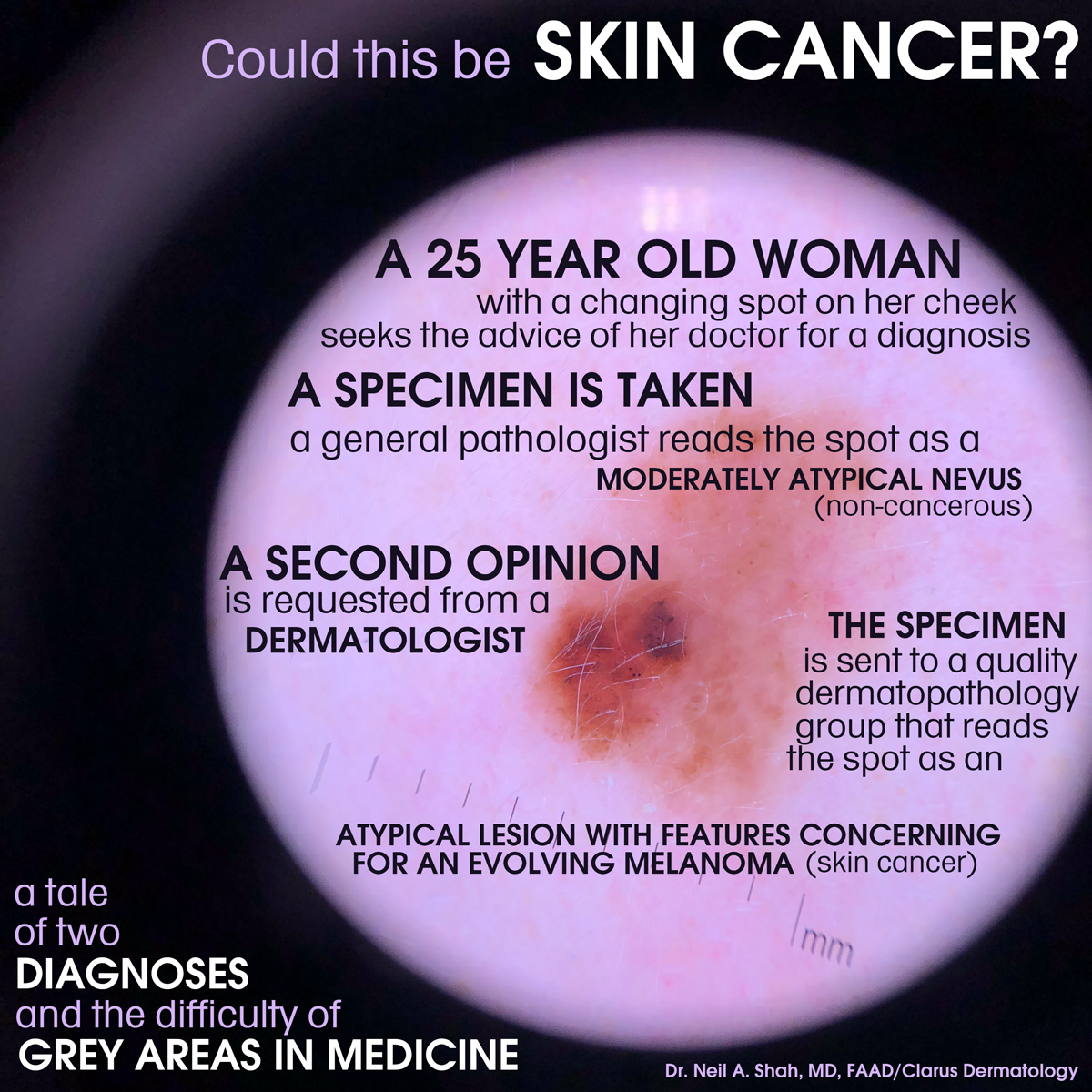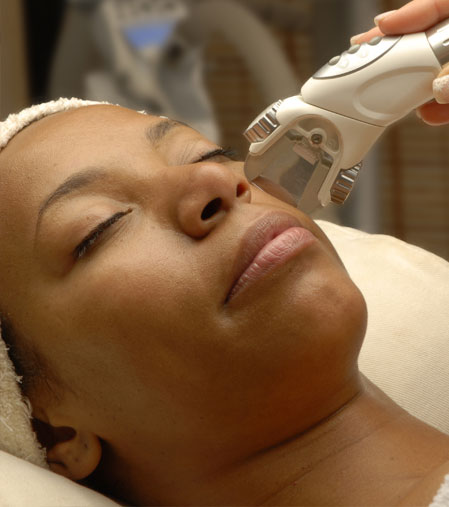
Could this be skin cancer? Is this changing spot on the cheek of a 25 year old woman something to be concerned about? Dr. Neil Shah evaluated the growth and found it highly concerning for a melanoma. The initial biopsy was routed to a general pathologist who diagnosed the spot as a moderately atypical nevus – a benign growth.
Dermatologists are trained in skin pathology to a greater degree than general pathologists so Dr. Shah personally reviewed the slides. He felt the lesion was concerning for a melanoma or perhaps a severely atypical nevus – a controversial growth that, in some cases, could represent an evolving melanoma. With this concern in mind he sent the slides to a quality dermatolopathology group.
There the specimen was shared amongst multiple pathologists. They agreed that this was a very difficult lesion to diagnose. In fact, if you showed this specimen to 100 dermatopathologists it’s highly likely that at least some would call it an invasive melanoma.
By correlating the clinical history (a changing spot with concerning features on dermatoscopic exam) with the pathology (highly abnormal looking and concerning for an evolving melanoma), Dr. Shah was able to construct a treatment plan for the patient: re-excision with wider margins of the affected area followed by regular skin examinations and assiduous sun protection.
Medicine isn’t easy. Even establishing the correct diagnosis is fraught with pitfalls. What if the growth was never sampled? What if it was never re-excised? What if this was truly an evolving melanoma? What if the patient had seen a fake dermatologist – meaning a physician not residency-educated and board-certified in dermatology – or a non-physician pretending at expertise in skin?
Practicing quality medicine is tough, nuanced, and takes years of training. You can’t take dermatological images and diagnoses and make a ‘medical cookbook’ out of them. There are a lot of grey areas in medicine; training, expertise and experience matter. Make sure that you’re seeing a board-certified dermatologist for all of your skin care.


